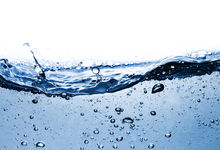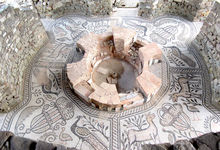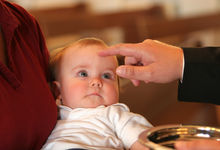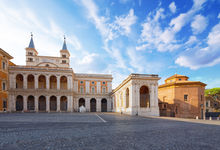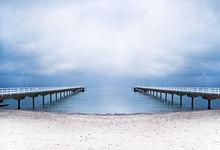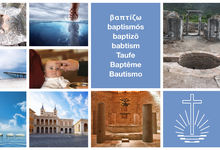The sacraments (10): Baptism, a fluid rite
It is the fundamental sacrament: baptism makes a human being into a Christian. But how is it to be celebrated? Jesus said next to nothing on that subject. It is not even clear whether He Himself ever baptised anyone. Following is a due and proper search for clues …

How easy it is when it comes to Holy Communion: three gospels and an Apostle report in exhaustive detail about everything Jesus did and said when He instituted this sacrament. For baptism, on the other hand, no such examples are described.
It is even quite unlikely that Christ ever baptised anyone Himself. Although the gospel of John relates such acts, it is also quick to emphasise: it was not Jesus who baptised, but His disciples. Did He perhaps not wish to institute this sacrament?
A command without any implementation guidelines
No, baptism is necessary for salvation. This is something Jesus Himself clearly stated: anyone who desires to enter the kingdom of God must be born again out of water and the Spirit. And it was for this reason that He also gave His Apostles the clear commission to baptise all nations. But He did not mention a single word about the proper way to do so.
After all, Christ allowed Himself to be baptised—by John the Baptist. All the gospels agree on that. However, the focus of that account is how the Holy Spirit descended upon Jesus and how the divine sonship of Christ was attested by the voice of the Father. All that is clear about the rite itself is that it took place in the Jordan River.
But perhaps the book of Acts can be of greater help. After all, the command to baptise all nations came from the Risen One, which means it only happened after Easter.
A mosaic comprised of snapshots
And indeed, baptism is as old as the church of Christ. Already in his Pentecost speech, Apostle Peter called upon his listeners to be baptised. And about 3,000 people took him up on the offer. But as for any indications concerning form, we find ourselves at a dead loss once again.
Even in the otherwise vivid account of Philip and the Ethiopian official, there is only so much we can learn: the baptised man simply enters a body of water that is not described in further detail.
Nevertheless, if one gathers up all the snapshots from the book of Acts and the letters of the Apostles, the mosaic begins to form a clearer picture.
Elements that are definitely part of baptism
Accordingly, a Christian baptism requires:
- the dispenser : contrary to the cleansing rituals of the time, there is no such thing as self-baptism. The sacrament must always involve one other individual who has been called to baptise the believer.
- water: although the Greek word for baptism suggests that the baptised submerges or even immerses himself in it, there is no explicit description of the procedure.
- the formula: in the New Testament, people are specifically baptised in the “name of Jesus” or “into Christ”.
- the profession: although the profession to Christ is not expressly required anywhere, it is implied or subsequently documented.
The path to unity
Beyond these, a variety of different elements were common in the baptismal rites of the early Christian period. A trend towards standardisation soon began, however. The Didache—a work dating from the first century AD, which is presumed to be the mother of all church orders—provides some very concrete specifications.
Accordingly, the baptised was first required to learn doctrine, then fast for two days, and finally be submerged into living—which is to say, flowing—water. Alternatively, the act of pouring water over the head of the baptised three times was also valid—a reference to possible water shortages.
Laying on of hands is an act that is repeatedly mentioned in association with the baptism of water—at times directly following it, and at other times following significantly later. However, this act has to do with the gift of the Holy Spirit, and that is another subject entirely—which will be covered in subsequent parts of this series.
Photo: Wirestock - stock.adobe.com



